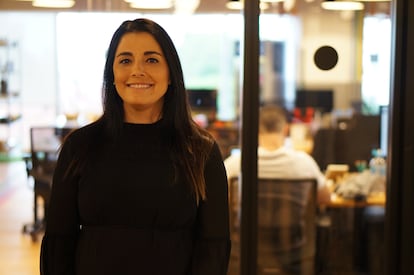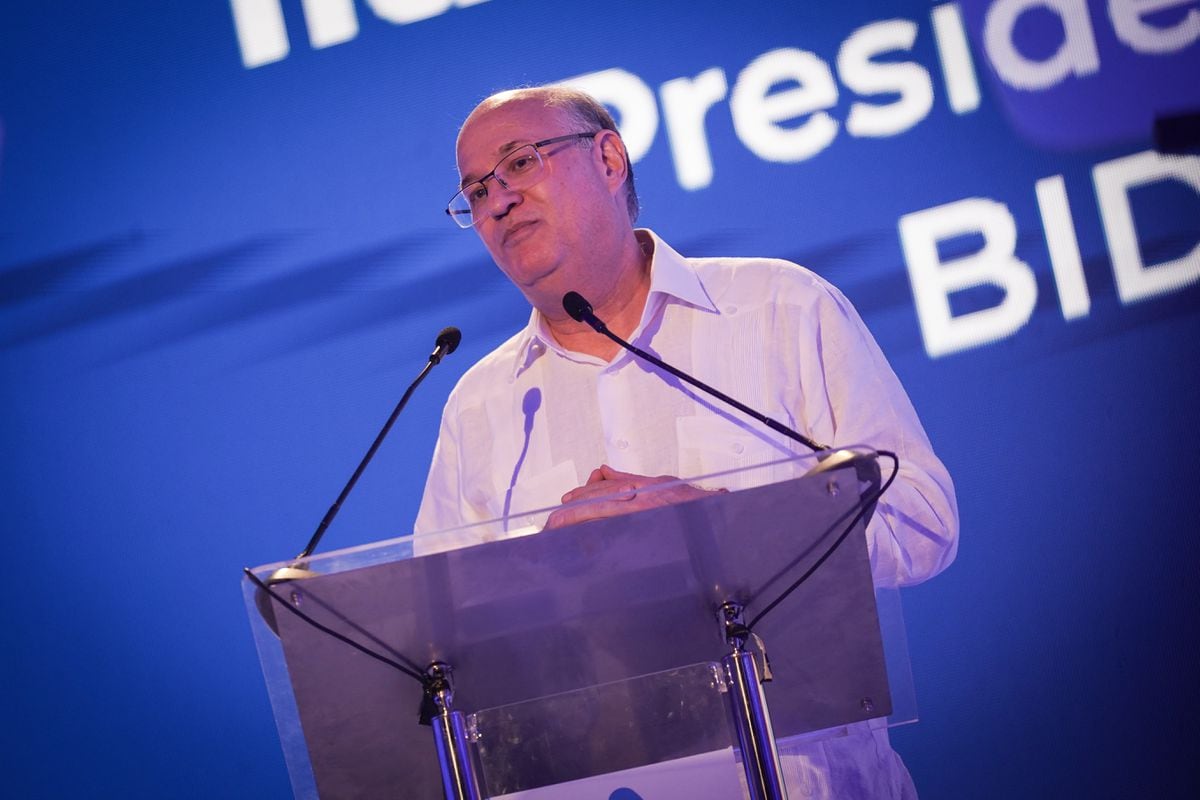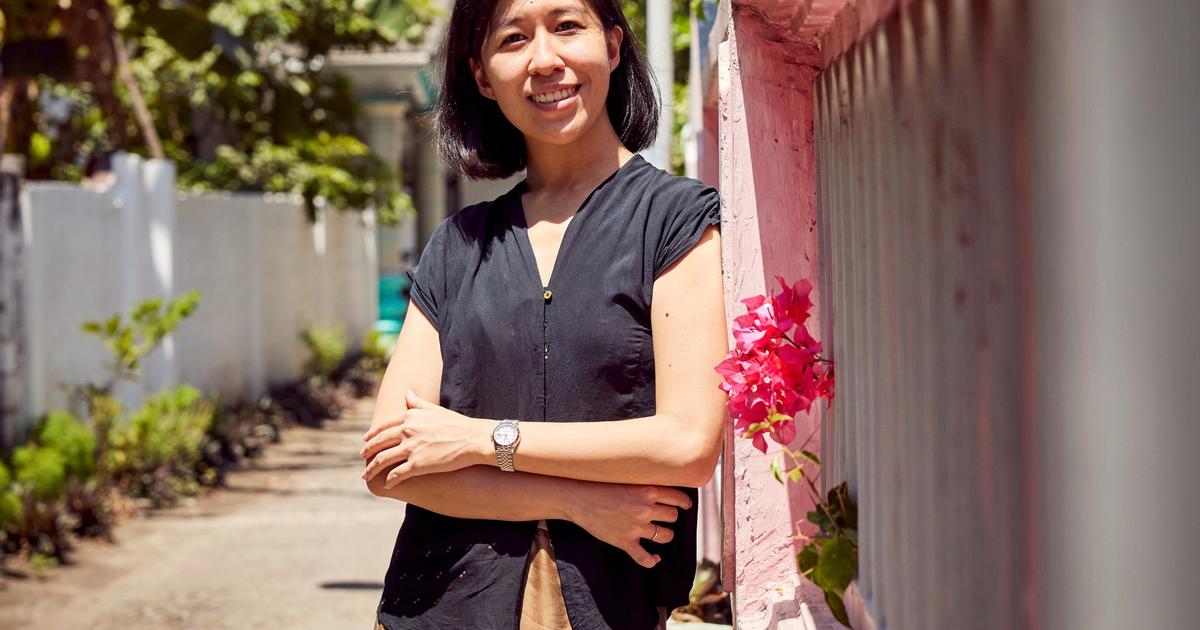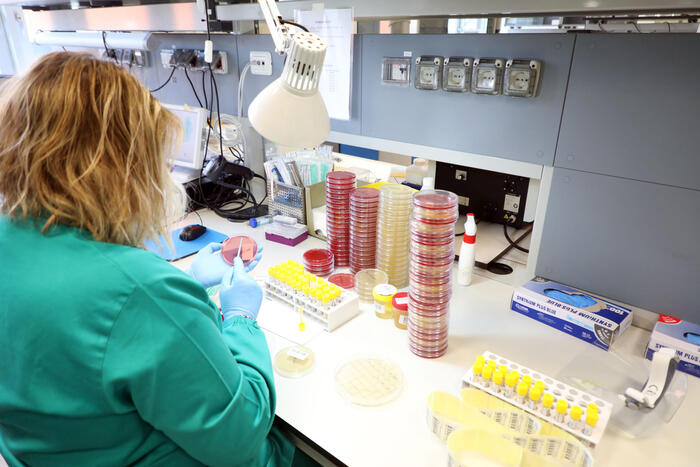Note to readers: EL PAÍS offers the Future Planet section for its daily and global information contribution on the 2030 Agenda. If you want to support our journalism,
subscribe here.
When economist Mariel Reyes Milk (Lima, 1980) resigned from her job at the World Bank, after 10 years, she was not sure what she would do.
But he did know that he wanted to
reprogram
the world for women.
"It bothered me that we were not creating technological solutions for so many problems that there are," recalls who by then had already moved to Brazil.
So without speaking Portuguese or being an expert in technology, she founded the {reprograma} initiative to teach the most vulnerable women in that country to be programmers.
More information
They do innovate, but they need you to invest
A winning strategy against inequality: invest only in what works
To accelerate the recovery, it is necessary to support women entrepreneurs
Cassava women who grow in Suriname and sell in the Netherlands
"Many people say that technology is the future, but it is the present," he explains in a video call from São Paulo.
It is a still mostly male and white present, which has been bothering her for several years now.
Because this inequality is not exclusive to the technological world.
For example, when at the age of 15 he studied in a private school in Lima, which had previously only been for men, there were only “about 13 women”.
"That's where the seed was planted that we still have to show that we can do things."
The same happened later when he was an economist in male-dominated areas, such as forest management.
It also happened every time he met with tech companies in Brazil.
“I had constant calls with managers, mostly men, to explain to them why support us and why hire diversity,” says Reyes Milk, who, inspired by her missionary grandparents, made this disagreement a reason to take charge of closing some of those gaps to women.
"I always say that it is in my blood, both the social and the entrepreneurial side," he says with a strong
Portuñol
.
Mariel Reyes Milk.
After months of research, in 2016 Reyes Milk launched {reprogram} with two partners: Fernanda Faria and Carla De Bona.
"We have been very few hands that with few resources did a lot," he highlights.
Despite the fact that at the beginning there were only the three of them in the team together with some volunteers, the change they reached was profound: "If before companies questioned why hire diversity, now they ask us: how do I do it?"
That diversity is what differentiates this
bootcamp
, or intensive training, from others that exist in Latin America.
In the words of Reyes Milk, his focus is on women “to whom no one reaches, for whom there are no opportunities”, which in Brazil are black and transgender women.
11 years ago, when the Peruvian arrived in Brazil, this was already one of the most transphobic countries in the world.
There, the life expectancy for transgender women is just 35 years.
Last year alone, 175 of them were murdered, of which 78% were Afro-descendants and residents of peripheral areas, according to the National Association of Transvestites and Transsexuals (Antra).
In addition, 90% of trans women prostitute themselves, since the crude exclusion that attacks them since they were girls means that only 0.02% of them study at universities and 4% have a formal job.
“It has been a challenge to reach them,” explains Reyes Milk, who with her team has reached out to existing communities and houses where many of the trans women live to offer them a place in the program.
Also, it has adapted its selection process.
"We usually ask that the students have finished high school, but many of them have not achieved it because of the violence at home," he says.
Many of the students arrive with the imposter syndrome, believing that they are not up to the task.
With all this, in one of the courses this year, 17% of the students are transgender and 70% are black.
"It's more than we've had in our entire history," Reyes Milk says of trans women.
"Many of them bring problems faced in their day to day that perhaps we as privileged have not even thought about," he admits.
For this reason, with the program he wants to give them a voice, the knowledge and the opportunity "to enter a market where it is not easy to enter."
And it does it for free.
"I don't want to charge them," he emphasizes.
"I want to take advantage of the opportunity that there is an immense demand for professionals and at the same time so many women who are passionate about technology, but who never had the opportunity due to issues of society, family or economic resources."
In these four years of {rescheduling}, the economist has seen more than 700 women graduate, this is 95% of all the students who have gone through the program.
"We promote support networks both within the course and in the technology sector afterwards, because they continue to speak and a sisterhood is created," she says.
Some of them even return to teach in the program, while they are programmers in a technology company.
But the change that {reprogram} is brewing is more than professional.
For its founder, the initiative "really reprograms the lives of women."
Many of the students arrive with the impostor syndrome, believing that they are not up to the task, and "come out transformed."
There are also mothers who, like Reyes Milk, program with their children next door.
"It is increasingly common to see former students with the computer and their baby," she expresses moved.
“That is a perfect summary of what we have achieved by giving them these tools and knowledge.
But it is they who have had the ability to take all that to change their life, that of their families and communities ”.
As of this year, the initiative has a financing of $ 300,000 from IDB Lab, the innovation laboratory of the Inter-American Development Bank (IDB).
With this impulse, Reyes Milk aspires to continue training programmers and teachers in technology "who will make a dramatic change in the ecosystem" and also to be able to take the project to other Latin American countries.
This is a short-term goal, because his dream for the future is another: that {reprogram} does not have to exist.
"That the market is 50-50, that there is a diversity of LGBTIQ +, black and indigenous women," she concludes.
"That the sector is a reflection of society and things can be created that meet the needs of all."
FUTURE PLANET can follow on
,
and
, and subscribe
here
to our 'newsletter'
.



/cloudfront-eu-central-1.images.arcpublishing.com/prisa/Q6UJ4IEP6ZGLZLS3MSHF7LNYOU.jpg)


/cloudfront-eu-central-1.images.arcpublishing.com/prisa/XWDEWCZPBVCCDFB3VJU2TWK5PY.jpg)


